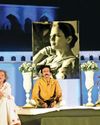Getting an organ transplant in India comes with its set of challenges—lack of donors and adequate infrastructure, high costs and transport hassles.

A heart transplant is to heart failure what lottery is to poverty. Noted American cardiologist Dr Arnold Katz's analogy seems apt if one were to glance through the data on organ transplants in India— only a few hundred heart transplants are done each year, while 50,000 patients remain on the wait list.
For a procedure considered 'gold standard' for patients of end-stage heart failure, the numbers are dismal. “Waiting lists with the National Organ and Tissue Transplant Organisation [NOTTO] run into several years, and many patients die during that period,” says Dr Ajay Kaul, chairman and head, cardiothoracic and vascular surgery, BLK Super Speciality Hospital, Delhi.
The numbers are no different when it comes to the more common transplant—kidney. Though, unlike the heart transplant, where the organ must come from a deceased donor, for a kidney, or even the liver, a live donor is possible. Even so, the gap between demand and supply is huge—about 3 lakh patients are in need of a kidney transplant at any moment. At a premier institute such as the All India Institute of Medical Sciences, only about 150 kidney transplants get done in a year, though a private hospital such as Delhi's Indraprastha Apollo Hospitals does 600 transplants in a year.
In April, issues with organ transplants in the country came to the fore when news broke of Finance Minister Arun Jaitley's possible kidney transplant at AIIMS. There was outrage over the minister “jumping the queue”—at least 400 patients, who have also managed a live donor, are on the AIIMS wait list for a kidney transplant. Initially though, the minister's transplant procedure had to be cancelled because of a “mismatch” between the donor and the recipient. He subsequently got a transplant done on May 14, and on June 4 tweeted about being back home.
Diese Geschichte stammt aus der June 24, 2018-Ausgabe von THE WEEK.
Starten Sie Ihre 7-tägige kostenlose Testversion von Magzter GOLD, um auf Tausende kuratierte Premium-Storys sowie über 8.000 Zeitschriften und Zeitungen zuzugreifen.
Bereits Abonnent ? Anmelden
Diese Geschichte stammt aus der June 24, 2018-Ausgabe von THE WEEK.
Starten Sie Ihre 7-tägige kostenlose Testversion von Magzter GOLD, um auf Tausende kuratierte Premium-Storys sowie über 8.000 Zeitschriften und Zeitungen zuzugreifen.
Bereits Abonnent? Anmelden

The female act
The 19th edition of the Qadir Ali Baig Theatre Festival was of the women and by the women

A SHOT OF ARCHER
An excerpt from the prologue of An Eye for an Eye

MASTER OF MAKE-BELIEVE
50 years. after his first book, Jeffrey*Archer refuses to put down his'felt-tip Pilot pen

Smart and sassy Passi
Pop culture works according to its own unpredictable, crazy logic. An unlikely, overnight celebrity has become the talk of India. Everyone, especially on social media, is discussing, dissing, hissing and mimicking just one person—Shalini Passi.

Energy transition and AI are reshaping shipping
PORTS AND ALLIED infrastructure development are at the heart of India's ambitions to become a maritime heavyweight.

MADE FOR EACH OTHER
Trump’s preferred transactional approach to foreign policy meshes well with Modi’s bent towards strategic autonomy

DOOM AND GLOOM
Democrats’ message came across as vague, preachy and hopelessly removed from reality. And voters believed Trump’s depiction of illegal immigrants as a source of their economic woes

WOES TO WOWS
The fundamental reason behind Trump’s success was his ability to convert average Americans’ feelings of grievance into votes for him

POWER HOUSE
Trump International Hotel was the only place outside the White House where Trump ever dined during his four years as president

DON 2.0
Trump returns to presidency stronger than before, but just as unpredictable